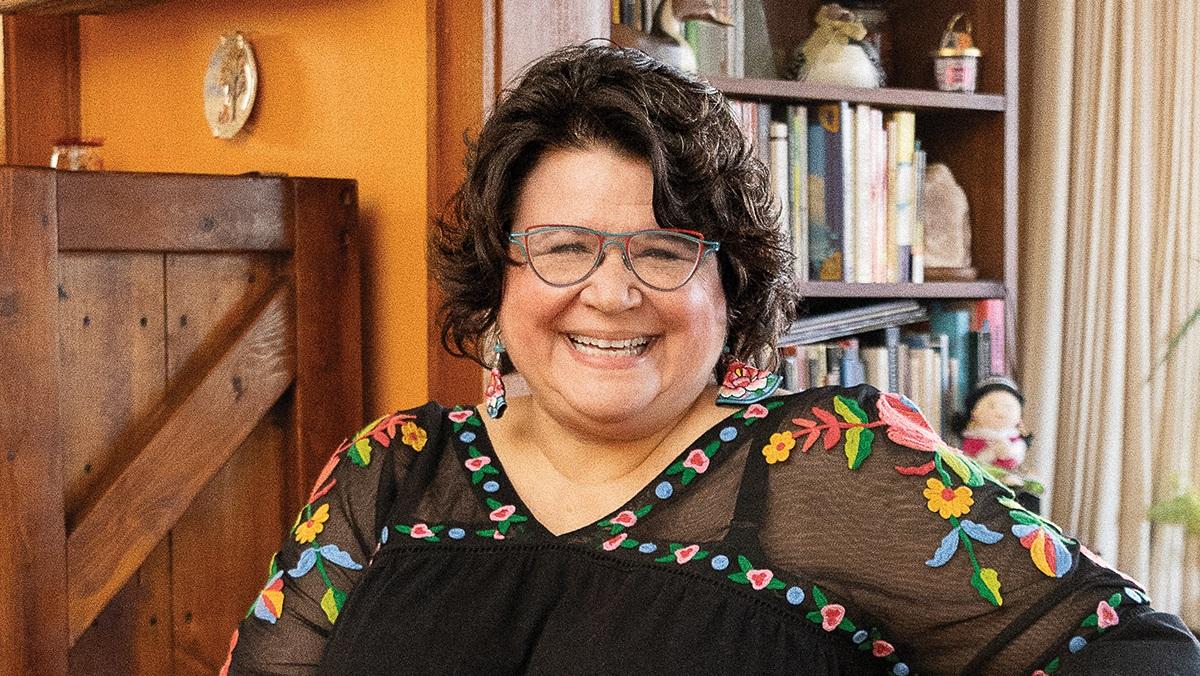Once upon a time, a young girl lived in a bungalow in the Bay View neighborhood of Milwaukee. At first glance, the girl’s house was modest, with a tan-brick exterior and cozy-sized rooms. The girl technically lived on the upper floor with her parents and brothers, but she spent much of her time on the first floor with her Aunt Elia, a colorful storyteller who loved children so much the family called her “the Mexican Mary Poppins.”
Elia was a talented seamstress who made clothes so beautiful people would stop her in public to ask where she’d purchased them. Elia told stories to the girl while working on her sewing machine, as the girl sat next to her and played with a box of buttons. The daughter of immigrants from Mexico, Elia had married Karel, an immigrant from Yugoslavia who spoke Slovenian. They communicated in a unique blend of languages the girl never forgot.
In this household, it was perhaps inevitable that the girl would grow up into award-winning poet Brenda Cárdenas. In January, Cárdenas was named the eleventh Poet Laureate of Wisconsin. She’ll serve a three-year term as state poet laureate and plans to spearhead an initiative to teach people how to write ekphrastic poetry, meaning poems written in response to visual art. She’s especially focused on trying to inspire people across the state to use their creative voices to connect with poets and artists they may not have encountered before and to reconnect with each other and their communities.
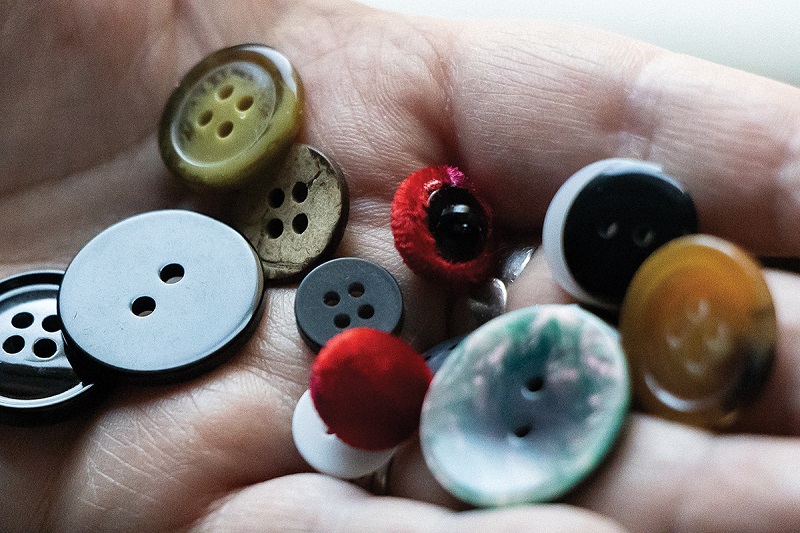
Cárdenas has written two full-length poetry collections, edited two poetry anthologies, authored several chapbooks, and been published in a wide range of journals and anthologies. She served as the poet laureate of Milwaukee from 2010-2012, and she’s the winner of the 2024 Society of Midland Authors Poetry Award and the silver winner of the 2023 Foreword Review Indie Poetry Awards, among several other awards.
“Brenda’s work is deeply influenced by art, culture, and community. She celebrates, in poetry and conversation, her personal influences and culture,” says Vida Cross, a poet and professor of English at Milwaukee Area Technical College who currently heads the commission that selects the state poet laureate. “When you listen to Brenda and read her work, you’ll notice many drop-the-mic moments.”
The sound of Cárdenas’s work is perhaps mentioned most often by reviewers. “Cárdenas’s masterful command of Chicano Caló, USA English, and Mexican Spanish weaves a brilliant celebration of the senses captured by a woman rich with artistic inspiration and keenly aware of her sensual and intellectual worth,” writes fellow poet Carlos Cumpián of Cárdenas’s latest full-length collection, Trace, published in 2023 by Red Hen Press.
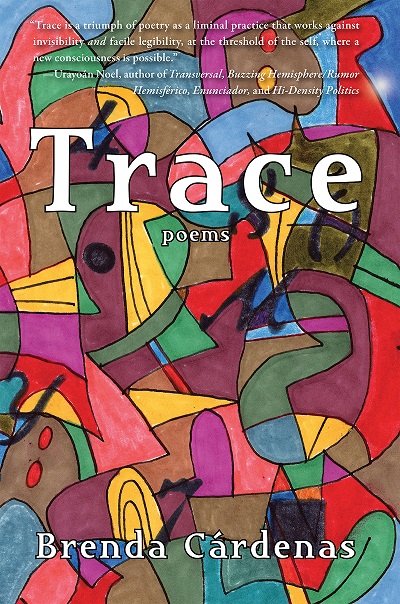
She’s also collaborated with musicians to bring her words to life in a way few other poets have experienced. In 2024, Greek alternative band Starwound set Cárdenas’s poem “Bucketsful” to music, and in 2023, her poem “Para los Tin-Tun-Teros” was set to choral music by composer Daniel Afonso and performed by the National Concert Choir at Carnegie Hall in 2024. Previously, animator Kyle Jenkins turned her poem “Song” into a short film for the Poetry Foundation, and Milwaukee-based dancer Kelly Anderson choreographed a piece set to Cárdenas’s “Sonnet for Thunder Lovers and Primary Colors.”
Cárdenas’s interest in multilingual—and multi-disciplinary—expression stems most obviously from her upbringing, but also from decades spent as a teacher in a wide range of classroom contexts. Cárdenas is a professor emerita of English at the University of Wisconsin–Milwaukee, where she spent seventeen years on the faculty. In addition to teaching poetry workshops and Latine literature courses, Cárdenas developed ekphrasis courses that taught emerging poets how to put their own work in conversation with the visual arts.
“Brenda is a force—not just a force for poetry, for art, but for justice, for community,” says University of Wisconsin–Milwaukee English Professor Liam Callanan, the current coordinator of the department’s creative writing program. “She is as much an artist of people as of words, transforming every reading into a kind of classroom. I’ve been in those audiences many times, and I can't describe quite how she does it. It's not magic—it takes a lot of work, and no poet works harder than Brenda—but it feels like magic all the same.”
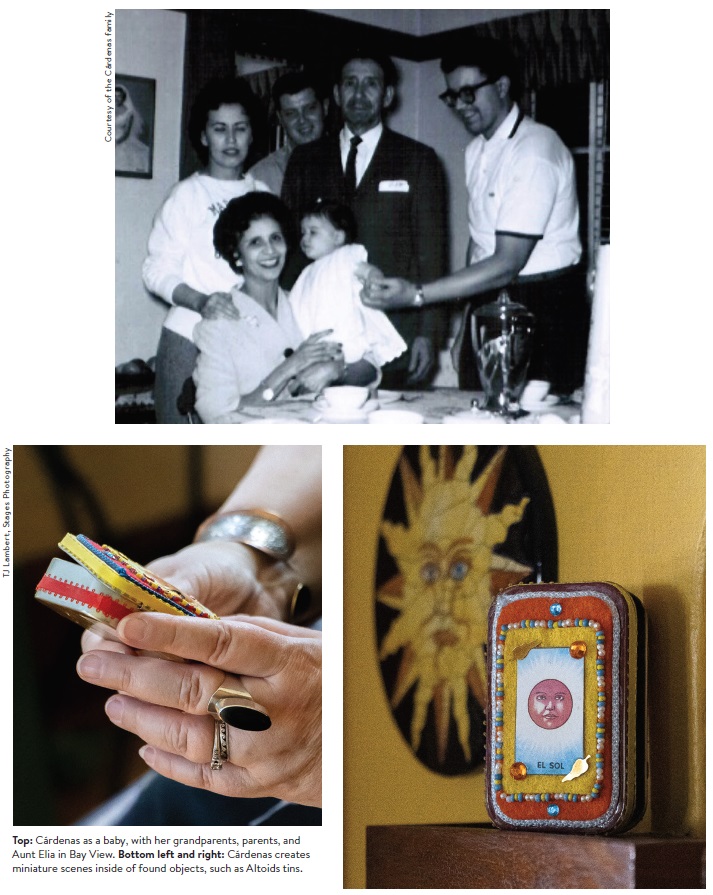
What Callahan calls magic is more like mystery, says Cárdenas, and it’s what attracted her to poetry during her high school years in Milwaukee. When a friend published a few of her “first, terrible little poems” in the high-school newspaper, Cárdenas was hooked. “I think it’s the concision of poetry that allows for so much mystery,” she says. “And I love having to go into a poem and really think about all the possible layers and nuances of meaning and figure it out for myself. I like that poetry asks that of us. I was just very drawn to it, and also to its music, its rhythms, the imagery.”
Inspired by the newspaper, she enrolled at University of Wisconsin–Eau Claire to study journalism but quickly realized that wasn’t the style of writing that truly interested her. Cárdenas transferred to UW–Milwaukee to major in English with a concentration in creative writing, Spanish, and history. After graduating, she attended UW–Oshkosh to obtain her teaching license. She then taught at a high school in Menomonee Falls for several years before pursuing an MFA at the University of Michigan in Ann Arbor, considered one of the top creative-writing programs in the country. She also specialized in Latine literature, which led to a series of adjunct teaching positions in Michigan and Illinois.
“I'm drawn to how writing and reading poetry can teach us about ourselves as well as other people and sentient beings, places, cultures, historical moments, cosmologies, etcetera,” she says. “For example, I have great appreciation for the poet Craig Santos Perez because of all he has taught me about Guam, its indigenous Chamorro people, and its fraught histories with Spain, Japan, and the United States.”
Though she enjoyed teaching, Cárdenas initially felt restless in academia. “I wanted to see change happen now, and I wanted to have an effect on my community,” she says. In 1998, she pivoted and became the coordinator for youth initiatives at the National Museum of Mexican Art in Chicago. The role was an eye-opening experience for Cárdenas. Among its many projects, the youth program ran a bilingual, youth-operated radio station and a visual-arts program that included everything from classes in print-making, mask-making, and design to large mural projects, including one at O’Hare International Airport featuring a collaborative poem written by the teenagers and printed in massive letters on a wall.
Over time, though, Cárdenas gradually felt a pull back toward the academic path she thought she’d left behind, and in 2001 she joined the English faculty at Wilbur Wright College, a Hispanic-serving institution that enrolls a large percentage of first-generation immigrants. She taught and led an initiative to create a Latino Studies certificate for the entire City Colleges of Chicago system.
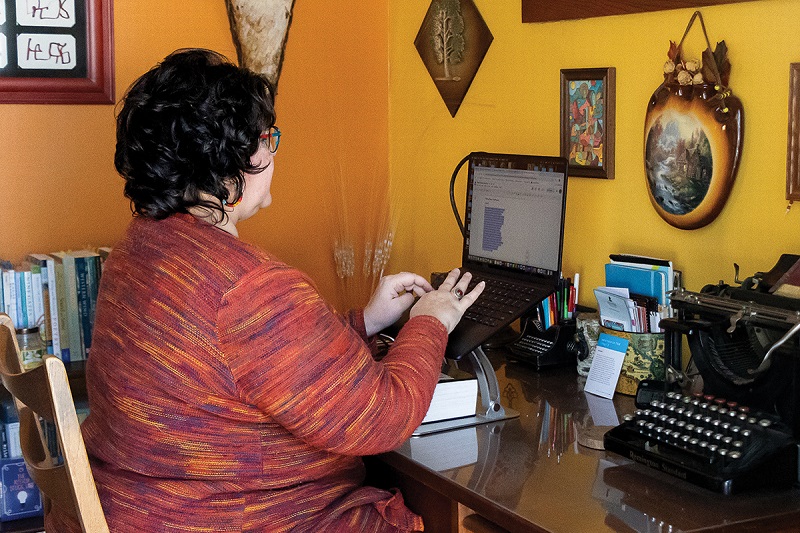
“It was a really beautiful place to be, and I loved my community there,” she says, but those were also the years before the bottom fell out of the housing market in Chicago. Cárdenas dreamed of owning her own home, but in the city, that particular dream felt impossible.
Friends and family began to suggest it was time for Cárdenas to come back home, to Milwaukee. Finally, in 2005, she did and joined Milwaukee Area Technical College as a professor.
That year she also happened to meet poet and visual artist Roberto Harrison (who is also a former Milwaukee poet laureate), and they married. In 2007, Cárdenas joined to the UW–Milwaukee faculty.
During the COVID-19 pandemic, she coped with the lockdowns by Zooming every week with a group of around fifteen other women poets who live across the country (and one abroad). They began writing together and supporting each other’s process from individual poems to full-length books, and they continue to meet every Friday. “We have become like family to one another,” she says. She has also joined the board of Woodland Pattern, a poet-and-artist-run nonprofit book center, gallery, and performance space in Milwaukee that hosts hundreds of events and programs each year.
And then, gradually, Aunt Elia and Uncle Karel began to have health challenges. The two still lived in the house in Bay View, and Cárdenas found herself going home again regularly to help out. After they died, they left the house to Cárdenas and Harrison.
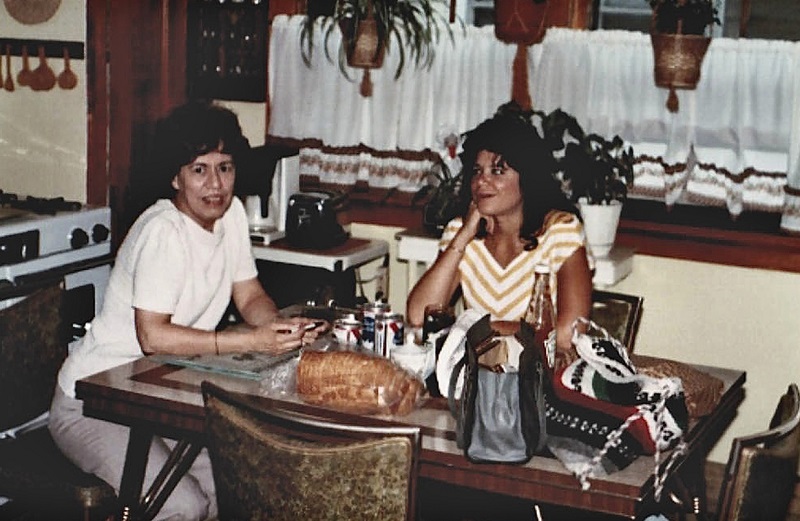
“I’ve never felt so much at home as I do right now,” she says while sitting at the kitchen table, near an old-fashioned walk-in pantry with big, wooden cupboards. “There are moments when I’m walking past the pantry, and in my mind, I see my aunt coming out of there with her little apron on.”
Friends tell her that visiting the house in Bay View is akin to stepping into an art museum, a curated experience of some of the places and cultures to which she and Harrison are most connected. For example, there’s a large ink drawing of the Pilsen neighborhood in Chicago where Cárdenas once lived, created by her friend Ricardo Compean. And there’s a large collection of fiber art by Kuna artists in Panama, where Harrison’s parents emigrated from, among dozens of other pieces.
Though Cárdenas is quick to characterize Harrison as the real visual artist of the pair, a visitor who looks closely at the shelves may spot a few of her own works, too: miniature sets and scenes that Cárdenas builds inside of found objects, such as Altoids tins. “They’re my houses,” she says, evoking a sort of Droste effect of mini art house-within-the art house, ad infinitum.
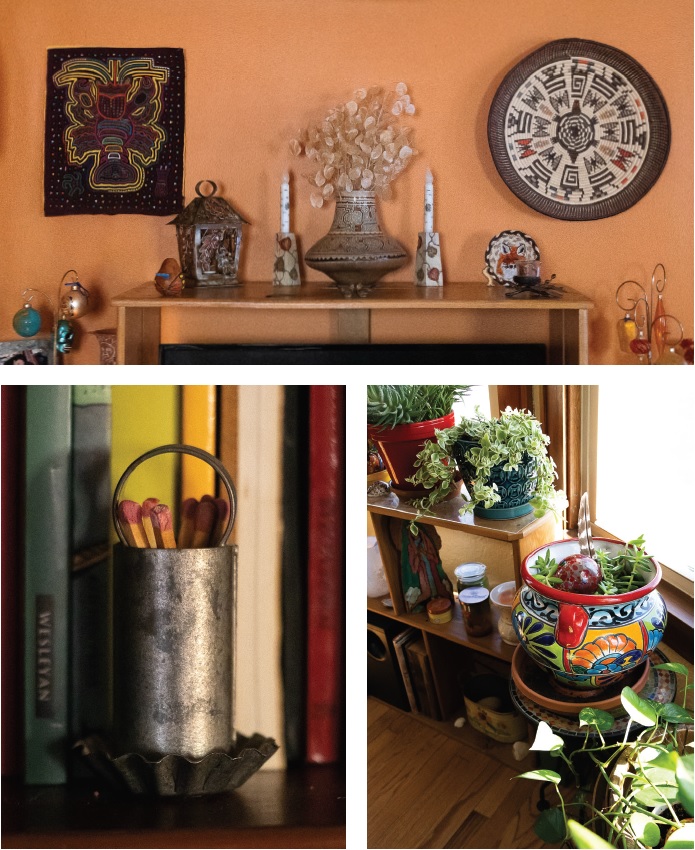
“I’ve had this repeating dream for years and years of a house,” she says. “It’s not always exactly the same, but there’s a house that I go into, and it has many rooms and multiple kitchens. In some of the dreams, people I’ve known occupy various rooms. In many of them, the house sits in front of a large body of water, and all I want to do is swim. And in some, it’s on a corner near a freeway, which is interesting because my father’s family was forced via eminent domain to move from 5th and Scott Streets to make way for a freeway, which is how we ended up in Bay View. Sometimes the dreams are scary, and other times not at all. It’s just wild.”
Some ekphrastic works, especially poems, zero in on a detail or element of, say, a painting in order to build and stretch and hammer out something new. This profile, for example, takes a sledgehammer to the biographical detail that Cárdenas now lives in the house where she grew up, in an attempt to assemble some broader, poignant point about Wisconsin as home from the parts and pieces of the childhood stories she’s given me. It’s an exercise that almost always forms a thread of connection between subject and artist, across time, across space, across every kind of divide imaginable. And those threads are exactly what Cárdenas is hoping to teach people to form between one another during her time as Wisconsin poet laureate.
“I’ve always loved the visual arts. And I like that you can have one piece of visual art, show it to twenty poets, and you’ll get twenty completely different poems,” Cárdenas says. “Ekphrasis is not just a response [of a poet to a prompt]. I think of it as a conversation or correspondence.”
She’s planning to set up poetry and visual-art relays in cities and towns across the state, where local poets will be invited to submit works that visual artists or photographers will then be invited to engage with. A second round of poets will respond to those new art works, and then another round of visual artists will respond to the new poems, and on and on, for as long as the community wants to continue. “Think of the old game of telephone or a relay race,” she says.
This is the kind of project she’s done with students for decades, and she’s witnessed firsthand how sharing and responding to others’ creative works can create a deep sense of mutual respect. “Empathy is one of the most important parts of our humanity that we’ve lost, yet poems can play a big role, like stories can, in terms of helping people empathize with each other,” she says.
“We all suffer. We all feel joy. We all feel grief, we all feel,” says Cárdenas. “There’s no better outlet for this than creativity—art, poetry, music, storytelling.”
She’s hopeful that during her time as state poet laureate, she can show people across Wisconsin that creativity provides a safe space for emotional catharsis and self-knowledge, a tool for learning, a stage for hard conversations, a space for healing.
A home, perhaps, for all the things we’re trying to say.
Cien nombres para la muerte:
Las jodidas/The Screwed Ones
(after the drawings La Jodida, Las Huesos, and La Cargona by Erik Ricardo de Luna Genel)
We are bent from the loads we’ve carried
strapped to our bony backs—sacks
of maíz, hierbas, frijoles; bundles
of firewood; jerry jugs of precious agua.
Each Saturday, we haul tall stacks
of caged birds to the mercado to sell
their captive songs—their laments,
our heaviest burden.
Hobble a mile in our ragged huaraches,
holes in their tire-tread soles. Follow
us to the village of whispers
where the only gritos belong to the wind,
empty doorways grown over with weeds,
our men’s dusty boots waiting years
for their return. Look into the cenotes
of our eyes. You’ll find no fish,
no flores, no monedas. Only sacrifices
with their mouths full of mud,
and the dread of our itchy grins.
Then tell us you would never risk
wrapping your little lamb in a rebozo,
grabbing your withered staff, and heading
north—devil sun, scorpion, migra
be damned. You’d fly for the birds
whose latches you could not unlock.
You’d fly so the only satchel your daughter
hoists on her shoulders is heavy
with libros, lapices y sueños. You’d fly
never believing they would wrest her
from your back and lock her in a cage.
Brenda Cárdenas
Previously published in Trace, Red Hen Press, 2023. Reprinted with permission.
Keys
My uncle and aunt left me two hands
full of keys, some to lost padlocks,
some so worn, they no longer turn
in locks that block me. One might let me
into his mother’s tavern or childhood
farmhouse in the old country. Another
to a diary describing the scorching
desert her parents crossed
to this land of maples and pines.
A few keys kept safe her treasures
not worth a dime: plastic purses, ring
with a blue glass stone, christening flowers
once pinned to the white dress
her brother wore forty-two years before
he burned black beneath a Pontiac
set aflame by the drunk who hit him
in a perfect perpendicular,
letters written in her husband’s mother
tongue that no one left here can speak.
Skeleton key for the cedar closet
opens to three generations
of handmade dresses, skirts, suits
tight in their plastic sheathes
and at the very back, her tiny
wedding dress, pearls tinted gray
like her hair on the pillow
the night I couldn’t find the key
to her breath. I remember
the strands as silver streaks
across a white sky, keys to a door
none of the living can enter.
Brenda Cárdenas
Previously published in Trace, Red Hen Press, 2023. Reprinted with permission.
This poem references the house where Cárdenas grew up in and where she currently lives.

